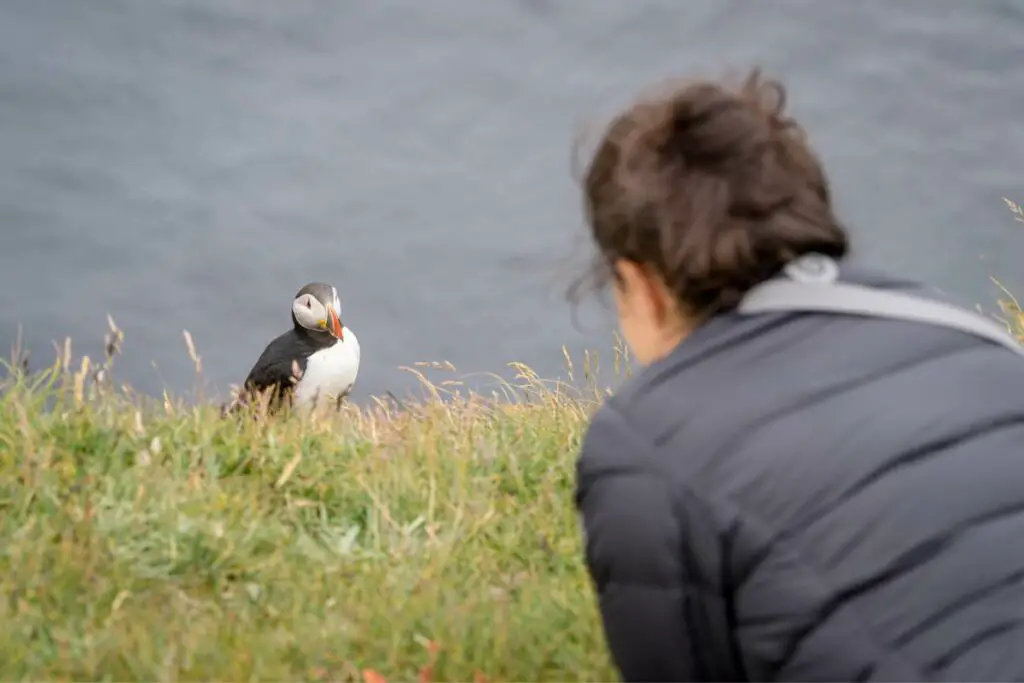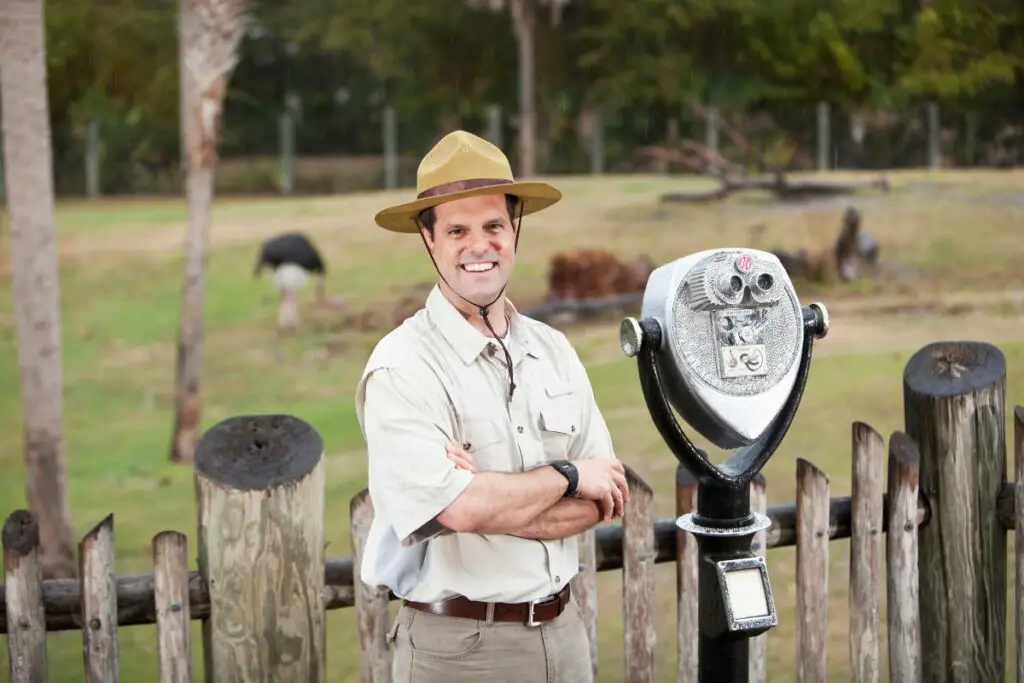If you are interested in birds and their habitats, you may have heard of ornithology and ornithologists.
Ornithology is a branch of zoology that focuses on the study of birds, including their behavior, physiology, and conservation.
Ornithologists are scientists who specialize in this field and may spend their time researching different bird species to better understand their biology and ecology.
Ornithology is an important field of study as birds play a crucial role in many ecosystems. Ornithologists may work in a variety of settings, including universities, research institutions, and government agencies.
They may conduct fieldwork to observe and collect data on bird behavior, or work in laboratories to analyze samples and conduct experiments.
Ornithologists may also work in conservation, helping to protect bird populations and their habitats.
What do Ornithologists do?
Ornithologists are scientists who study birds and their behavior, physiology, and conservation. As an ornithologist, you may spend your time surveying, recording, and reporting on bird activity, both in the field and in the laboratory.
One of the primary tasks of an ornithologist is to gather data on bird populations and their habitats. This data is used to inform conservation efforts and to identify areas where bird populations are declining or endangered.
Ornithologists may also specialize in studying specific bird species or groups, such as sea birds or songbirds.

Ornithologists use a variety of tools and techniques to study birds. These may include binoculars, telescopes, and cameras for observing birds in the field, as well as laboratory equipment such as microscopes and DNA sequencers for analyzing bird samples.
Ornithologists may also use computer modeling and statistical analysis to interpret their data and make predictions about bird populations and behavior.
Some specific tasks that an ornithologist may perform include:
- Conducting bird surveys to assess population size and distribution
- Monitoring bird behavior, such as breeding and migration patterns
- Collecting and analyzing bird specimens, such as feathers, blood, or tissue samples
- Assessing the impact of human activities on bird habitats, such as logging or urban development
- Developing and implementing conservation strategies to protect endangered bird species
Overall, ornithologists play a crucial role in understanding and protecting bird populations around the world.
If you have a passion for birds and want to make a difference in their conservation, a career as an ornithologist may be a great choice for you.
What is Ornithology?
Definition
Ornithology is the scientific study of birds, including their behavior, physiology, and conservation. Ornithologists observe and analyze bird behavior, such as tracking devices, field observations, and laboratory experiments.
They study every aspect of birds, including their songs, flight patterns, physical appearance, and migration patterns. This work often involves surveying, recording, and reporting on bird activity.
History
The study of birds has a long tradition within the discipline of zoology. The ancient Greeks and Romans were interested in birds and their behavior, and Aristotle wrote extensively about them.
The first ornithological society was founded in 1858 in Britain, and the first scientific journal devoted to ornithology, The Ibis, was launched in 1859.
Today, ornithology is an important field of study, with many universities offering degrees in the subject.
Ornithologists play an important role in understanding and protecting bird populations and their habitats.
By studying the biology and habits of birds, ornithologists are able to identify threats to bird populations and develop strategies to protect them.

They may work for government agencies, non-profit organizations, or private companies, conducting research, monitoring bird populations, and educating the public about the importance of bird conservation.
Ornithology is a field that requires a lot of travel, as ornithologists often work in remote locations to study birds in their natural habitats.
They may spend weeks or months at a time in the field, observing and recording bird behavior. This work can be physically demanding, requiring long hours of hiking, climbing, and carrying equipment.
Overall, ornithology is a fascinating and important field of study that helps us understand and protect the birds that share our environment.
Where Does an Ornithologist Work?
If you’re interested in becoming an ornithologist, you may be wondering where you’ll work.
Most ornithologists work for land and wildlife agencies at the federal and state levels, or nonprofit conservation organizations. These organizations are responsible for protecting and preserving bird habitats and populations.
Ornithologists may work in a variety of settings, depending on their job duties. Some may spend the majority of their time in the field, observing and studying wild bird populations.
Others may work in a laboratory, analyzing data and conducting experiments to better understand bird behavior and ecology.
Some ornithologists may also work in academic settings, teaching courses on bird biology and conducting research at colleges and universities.
In these settings, they may work with students and other researchers to develop new theories and techniques for studying birds.
Overall, the work of an ornithologist can be both exciting and challenging.
Whether you’re working in the field or in a lab, you’ll be contributing to our understanding of these fascinating creatures and helping to protect them for future generations.
Can Anyone Become an Ornithologist?
If you have a passion for birds and a desire to learn more about them, then becoming an ornithologist may be the right career path for you. However, there are some factors to consider before pursuing this profession.
Firstly, ornithology requires a strong foundation in science and math. Most ornithologists start with a bachelor’s degree in biology, wildlife biology, zoology, or ecology. These degrees can help prepare you for the field and provide a solid foundation for advanced studies.
Secondly, ornithology can be a physically demanding field, requiring long periods of time outdoors, often in remote locations. It is important to be in good physical condition and have a willingness to work in challenging environments.
Thirdly, ornithology is a competitive field, with limited job opportunities. It is important to gain experience through internships, volunteer work, and research projects to build a strong resume and increase your chances of finding employment.
Finally, ornithology is a field that welcomes people of all ages and genders. There is no age limit to becoming an ornithologist, and both males and females can excel in this profession.
However, it is important to be aware of the challenges and requirements of the field before pursuing it as a career.
How to Become an Ornithologist
If you are interested in becoming an ornithologist, there are several steps you can take to achieve your goal. This section will provide you with information on the education, skills, and experience you need to become an ornithologist.

Education
Most ornithologists start their careers by earning a bachelor’s degree in fields such as biology, ecology, wildlife biology, or zoology.
These degrees provide a strong foundation in science and math, which are essential for understanding the behavior, populations, and diversity of birds.
After completing your bachelor’s degree, you may consider pursuing a master’s degree in ornithology, zoology, wildlife biology, or a related field.
A master’s degree will provide you with more specific education and research skills to become a professional ornithologist.
Skills
Ornithologists need to have a range of skills to be successful in their profession. These include:
- Strong analytical and problem-solving skills
- Excellent communication skills, both written and verbal
- Ability to work independently and in a team
- Attention to detail and accuracy
- Strong computer skills, including knowledge of statistical software
Experience
Experience is also important for becoming an ornithologist. You can gain experience in several ways:
- Volunteering at a bird sanctuary or wildlife rehabilitation center
- Participating in bird surveys or bird banding programs
- Conducting independent research projects on birds
- Completing internships or research assistantships with professional ornithologists
Having experience in these areas will help you develop the skills and knowledge needed to become a professional ornithologist.
Overall, becoming an ornithologist requires a combination of education, skills, and experience. If you are passionate about birds and interested in a career in ornithology, pursuing a bachelor’s or master’s degree in a related field is a good place to start.
According to the Environmental Science, the median annual salary for ornithologists is $63,420. Ornithologists work in a variety of settings, including government agencies, research institutions, and non-profit organizations.
They use data and research to study bird behavior, populations, and habitats, and publish their findings in scientific journals and books.
Do you need a degree to become an ornithologist?
The short answer is yes, in most cases, a degree is required to become an ornithologist.
Most ornithologists start out with a bachelor’s degree in biology, wildlife biology, zoology, or ecology. These degrees provide a strong foundation in the scientific principles and methodologies necessary for a career in ornithology.
In addition, these programs often offer courses specific to birds and their behavior, physiology, and ecology.
While a bachelor’s degree is sufficient for some entry-level positions, many professional ornithologists hold advanced degrees.
A master’s degree in a related subject is typically required for higher-level positions, and a Ph.D. is necessary for professorial and high-level administration positions.
It is important to note that ornithology is a specialized field, and there are not many programs specifically dedicated to the study of birds.
However, there are several programs that offer courses in ornithology as part of a broader curriculum in biology or ecology.
Overall, obtaining a degree in a related field is an important step towards becoming an ornithologist. It provides the necessary knowledge and skills to pursue a career in this exciting and rewarding field.
Ornithology Research
If you are interested in becoming an ornithologist, research is a crucial part of your job. Ornithologists study birds and their behavior, physiology, and conservation.
One aspect of research involves studying bird habitats, migration patterns, and populations. This research helps ornithologists understand how birds interact with their environment and how to best protect them.
Habitat Research
Habitat research involves studying the habitat needs of birds. This research helps ornithologists understand what types of habitats birds require to survive and thrive.
Ornithologists may work with land managers, government agencies, and wildlife biologists to identify and protect important bird habitats. This research may involve field research, laboratory work, and computer modeling.
Migration Research
Migration research involves studying the movements of birds during migration. Ornithologists may track birds using radio transmitters or GPS devices to understand their migration patterns.
This research helps ornithologists understand how birds adapt to changing weather conditions and how they communicate with each other during migration.
Population Research
Population research involves studying the number of birds in a given area. Ornithologists may conduct surveys to count the number of birds in a particular habitat.
This research helps ornithologists understand how bird populations are changing over time and how to best protect them from extinction.
Population research may also involve studying the impact of disease, habitat loss, and other factors on bird populations.
To become an ornithologist, you will need a strong background in biology, math, and environmental science.
You may also need hands-on experience through internships or volunteer work. Employers may include government agencies, zoos, wildlife parks, and environmental organizations.
Strong communication skills are also important for ornithologists, as they often work with other scientists, land managers, and legislative advocates.
Ornithology is a field that is in high demand due to the increasing need for wildlife management and conservation.
According to the dictionary, ornithology is the scientific study of birds, and it is a field that is constantly evolving.
With a master’s degree or advanced degree in ornithology, you can work in a variety of settings, including laboratories, remote locations, and state and federal government agencies. Ornithologists may also work as teachers, ecologists, or wildlife impact assessors.
Overall, if you are passionate about birds and their protection, ornithology may be the perfect career for you. With the right skills and education, you can make a difference in the scientific study and protection of wild birds.
Is Ornithology Demanding?
Ornithology can be a demanding field, both physically and mentally. As an ornithologist, you may need to work long hours, often in the field, to gather data and conduct research. This may involve hiking through rough terrain, climbing trees, or even traveling to remote locations.
Depending on the nature of your work, you may also need to work irregular hours, such as early mornings or late nights, to observe bird behavior or conduct surveys. This can make it challenging to maintain a regular schedule or work-life balance.
Ornithologists may work in a variety of settings, including urban areas, rural areas, and wilderness areas. Some may work in museums, zoos, or research institutions, while others may work for government agencies or non-profit organizations.
Regardless of where you work, ornithology requires a strong knowledge of biology, ecology, and environmental science. You will need to be able to collect and analyze data, write reports, and communicate your findings to others in the field.
Overall, ornithology can be a rewarding and fulfilling career for those with a passion for birds and the environment.
However, it is important to be prepared for the demands of the field, including long hours, physical challenges, and a commitment to ongoing learning and professional development.
How much does an ornithologist get paid?
The salary for ornithologists can vary based on factors such as geographic location, employer, education, and experience.
According to the United States Bureau of Labor Statistics, the median annual wage for zoologists and wildlife biologists, including ornithologists, was $64,650 per year as of May 2020.
However, salaries can range from around $32,000 per year for the bottom 10% to over $94,000 per year for the top 10%.
The actual salary for an ornithologist may depend on their specific job title, the industry they work in, and other factors.
How many hours a day does an ornithologist work?
Ornithologists typically work full-time, which can mean working up to 40 hours per week or more. However, the hours can vary depending on the specific job and the demands of the work.
For example, ornithologists may need to work non-standard or extended hours when doing fieldwork, such as during breeding season, and may need to work early mornings, evenings, or weekends to study birds at specific times.
According to the Bureau of Labor Statistics, ornithologists may have a variable work schedule that is far from standard, depending on the project they are working on and the species they are studying.
How many Ornithologists are there in the USA?
It’s difficult to determine the exact number of ornithologists, as the field encompasses a wide range of professionals, including researchers, educators, conservationists, and others.
No recent study on the numbers has been carried out.
However, according to the North American Ornithological Society, there are around 6,000 ornithologists employed in the United States alone as of 2013.
This number may have changed in recent years due to various factors, such as changes in funding and employment opportunities.
Can you get paid to watch birds?
What skills are important for an ornithologist?
What are some conservation issues facing birds today?
What are some benefits of studying birds?
Finally..
If you are passionate about birds and have a strong interest in their behavior, physiology, and conservation, a career in ornithology may be a great choice for you.
With the right education and experience, you can turn your love of birds into a fulfilling and rewarding career.
